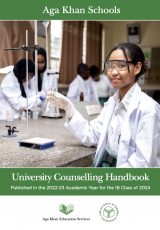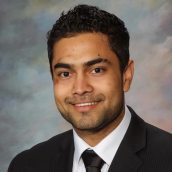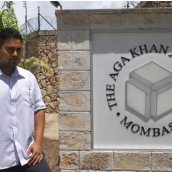Harsev Oshan: AKA, Mombasa Graduate Helps Increase Access to Education, a Dollar at a Time
The conversation reminded Oshan of some of the families he’d met during his final two years at the Academy, when he interned with Education for Marginalised Children in Kenya (EMACK), a program that aims to ensure equitable access to quality basic education for marginalised children. The projects he helped out with included the Girls Forum, which enabled girls to identify and address the socio-cultural factors affecting their access to, completion of and performance at school. As a part of the project, he spoke to girls about the challenges they faced and discussed the importance of education with their parents.
“I knew that [girls dropping out of school] was a severe problem in the Kenyan community but did not know exactly what the root cause of the problem was,” said Oshan. “Being able to interact with the community was very helpful. I…eventually identified the main societal issue at hand – which is poverty.”
Poverty led families to take their girls out of school: when parents married their young daughters off to older men, they received a significant dowry that helped them through difficult circumstances.
Two years later, Oshan’s dinnertime conversation about the cost of food inspired him to fundraise for EMACK’s efforts to keep more low-income children in school. He organised a week-long, buffet-style lunch in partnership with his fraternity and other student organisations. A chef and sponsors provided a $5 meal to UBC students with $4 from each meal going towards food for primary schools in marginalised communities. The event raised $1,204 CAD and he is working to expand the initiative to three other universities.
Oshan says that AKA, Mombasa’s service programme provided him with a way of putting his desire to make a difference into practice by helping him identify problems for which he could create solutions. The buffet wasn’t the first time he’d attempted to do so.
He followed this process when he assisted EMACK with its work with students with special needs as an AKA, Mombasa student. “I noticed that there were children who had reached the age of 20 and were still in grade one simply because they couldn’t cope with the Kenyan curriculum. Essentially, parents used schools as a day care centre,” he said.The problem inspired Oshan to research how other countries handled the issue. He learned about specialised curricula that could be designed for such students and contributed to EMACK’s work on the issue. Soon afterwards, EMACK presented the idea to the Ministry of Education and developed a curriculum that has been piloted in two schools.
Oshan’s drive to identify and solve social problems has also shaped his career goals. After graduating from UBC, he plans to obtain a Master’s in Journalism before returning to Kenya to work on public policy related to education.
By Alia Dharssi
publications






